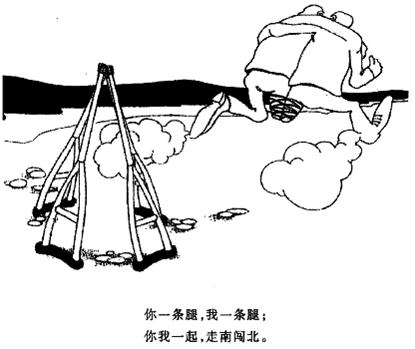时间:2016-03-03 07:11:44
[F] In the final paragraph about the significance of the setting in “A & P,” the student brings together the reasons Sammy quit his job by referring to his refusal to accept Lengel’s store policies.
[G] By using the first draft as a means of thinking about what you want to say, you will very likely discover more than your notes originally suggested. Plenty of good writers don’t use outlines at all but discover ordering principles as they write. Do not attempt to compose a perfectly correct draft the first time around.
Directions:
Read the following text carefully and then translate the underlined segments into Chinese. Your translation should be written clearly on ANSWER SHEET 2. (10 points)
In his autobiography, Darwin himself speaks of his intellectual powers with extraordinary modesty. He points out that he always experienced much difficulty in expressing himself clearly and concisely, but (46) he believes that this very difficulty may have had the compensating advantage of forcing him to think long and intently about every sentence, and thus enabling him to detect errors in reasoning and in his own observations. He disclaimed the possession of any great quickness of apprehension or wit, such as distinguished Huxley. (47) He asserted, also, that his power to follow a long and purely abstract train of thought was very limited, for which reason he felt certain that he never could have succeeded with mathematics. His memory, too, he described as extensive, but hazy. So poor in one sense was it that he never could remember for more than a few days a single date or a line of poetry. (48) On the other hand, he did not accept as well founded the charge made by some of his critics that, while he was a good observer, he had no power of reasoning. This, he thought, could not be true, because the “Origin of Species” is one long argument from the beginning to the end, and has convinced many able men. No one, he submits, could have written it without possessing some power of reasoning. He was willing to assert that “I have a fair share of invention, and of common sense or judgment, such as every fairly successful lawyer or doctor must have, but not, I believe, in any higher degree.” (49) He adds humbly that perhaps he was “superior to the common run of men in noticing things which easily escape attention, and in observing them carefully.”
Writing in the last year of his life, he expressed the opinion that in two or three respects his mind had changed during the preceding twenty or thirty years. Up to the age of thirty or beyond it poetry of many kinds gave him great pleasure. Formerly, too, pictures had given him considerable, and music very great, delight. In 1881, however, he said: “Now for many years I cannot endure to read a line of poetry. I have also almost lost my taste for pictures or music.” (50) Darwin was convinced that the loss of these tastes was not only a loss of happiness, but might possibly be injurious to the intellect, and more probably to the moral character.
51. Directions:
You have just come back from Canada and found a music CD in your luggage that you forgot to return to Bob, your landlord there. Write him a letter to
1) make an apology, and
2) suggest a solution.
You should write about 100 words on ANSWER SHEET 2.
Do not sign your own name at the end of the letter. Use “Li Ming” instead.
Do not write the address. (10 points)
52. Directions:
Write an essay of 160-200 words based on the following drawing. In your essay, you should
1) describe the drawing briefly,
2) explain its intended meaning, and then
3) give your comments.
You should write neatly on ANSWER SHEET 2. (20 points)

Section I: Use of English (10 points)
|
1. B |
2. D |
3. A |
4. C |
5. C |
|
6. A |
7. B |
8. D |
9. B |
10. C |
|
11. B |
12. D |
13. A |
14. C |
15. D |
|
16. D |
17. C |
18. A |
19. B |
20. A |
Section II: Reading Comprehension (60 points)
Part A (40 points)
|
21. A |
22. D |
23. C |
24. B |
25. D |
|
26. D |
27. C |
28. A |
29. A |
30. B |
|
31. A |
32. C |
33. B |
34. D |
35. C |
|
36. D |
37. B |
38. C |
39. A |
40. B |
Part B (10 points)
|
41. D |
42. G |
43. A |
44. C |
45. E |
Part C (10 points)
46. 他认为或许正因为(语言表达上的)这种困难,他不得不对自己要说的每句话都经过长时间的认真思考,从而能发现自己在推理和观察中的错误,结果这反而成为他的优点。
47. 他还坚持认为自己进行长时间纯抽象思维的能力十分有限,由此他也认定自己在数学方面根本不可能有大的作为。
48. 另一方面,某些人批评他虽然善于观察,却不具备推理能力,而他认为这种说法也是缺乏根据的。
49. 他又自谦的说,或许自己“在注意到容易被忽略的事物,并对其加以仔细观察方面优于常人”。
50. 达尔文确信,没有了这些爱好不只是少了乐趣,而且可能会有损于一个人的思维能力,更有可能导致一个人道德品质的下降。
Section III: Writing (30 points)
Part A (10 points)
51. 参考范文
(略)
Part B (20 points)
52. 参考范文